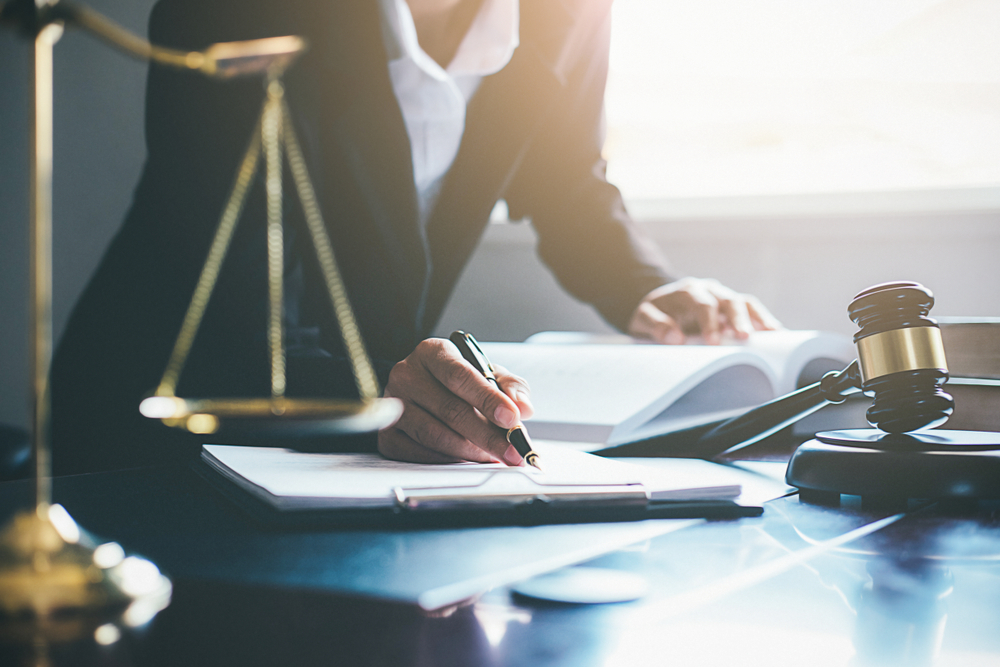
Navigating through a trial hearing process can be complex and convoluted. However, this should not deter you from performing the best you can at trial. Whether you are an accused giving evidence or a witness called to give evidence, you must be in the best condition possible when you appear in Court.
The processes and procedures may differ in varying criminal jurisdictions. Notwithstanding these differences, an accused will either sit near their counsel at the trial hearing, or at the dock. The accused is entitled to hear all the allegations. Naturally, it is their right to remain in Court during the entire trial hearing.
The usual order of a trial hearing is as follows:
Housekeeping matters
At the commencement of a trial hearing, the presiding magistrate or judge will first deal with any pressing issues related to the trial. This may include the logistics of witnesses giving evidence and admissibility of evidence.
Some housekeeping matters could take a while to resolve as they may ultimately affect how the defence and/or prosecution present their case. This may include issues regarding the disclosure or admissibility of a certain piece of evidence.
As a witness, we recommend that you plan your schedule according to the trial process. To ensure that the trial proceeds as smoothly as possible, it is always recommended that you remain flexible on when you can give evidence or appear in Court.
The Prosecution opens their case
At the commencement of a trial hearing, it is almost always the case that the State or police prosecution will commence with an ‘opening submission’. Opening submissions are used to draw Court and jury’s attention on the crucial reasons why an accused is innocent or guilty.
The defence may elect to provide opening submission after the prosecution concludes their opening. The defence may also elect to delay their opening submission until the prosecution witnesses have given their evidence. Whether a defence should delay their opening will depend on whether there is a tactical advantage to opening their case at an early stage of a trial proceeding.
Prosecution’s witnesses.
After providing an opening submission, the State or police prosecution will call their witnesses in the order they chose. It is common practice that the complainant or a victim in a matter to give evidence first, followed by the investigating officer. Last but not least, if there is an expert witness to be called, their evidence will depend on the expert’s availability, Court resources and the preference of both prosecution and defence counsel.
Each of the witnesses will give evidence as follows:
1. Evidence in Chief
A witness will first be called to the stand to give their version of events. A witness is not allowed to be led by their counsel at trial. This means that a witness is not allowed to be asked ‘closed-ended questions’ when they are giving evidence unless the judge or magistrate allows counsel to lead evidence on non-contentious matters, such as the time and place of an incident.
2. Cross-Examination
After giving evidence in chief, it is the role of the opposing counsel to cross-examine a witness. There is no hard and fast rule of how cross-examination is done. As a witness, we recommend that you answer the questions as honestly as possible and in a non-argumentative and non-confrontational manner. There are many reasons why opposing counsel would wish to cross-examine a witness. They may include the following:
- To test the veracity of a witness’ evidence
- Prior inconsistent statement
- To test the character of the witness
- To test the credibility and reliability of the witness’ evidence.
If used effectively, cross-examination can assist the Court and jury members to try and find a reasonable and logical explanation about the key issues in contention at a trial. Cross-examination is also used to narrow down the inferences that can be drawn on any key aspects of the case.
3. Re-Examination Questions
After a witness is cross-examined, the counsel for the witness is entitled to re-examine a witness. However, this is not an opportunity for the witness to lead new evidence.
4. Defence’s case and defence’s witness
Once the prosecution’s witnesses have been called. The prosecution would close their case. If the defence counsel has elected not to open their case after the prosecution has made its opening submission. The defence is entitled to make their opening before calling their first witness. The defence counsel would then call the defence witnesses in the same fashion as the prosecution’s witness, with the accused giving evidence first, followed by any witnesses that the defence counsel deem relevant to the case.
Each and every defence witnesses will have to observe the same methodology as described above when giving evidence
5. Closing Submission
In many regards, closing submission is one of the most important aspects of a trial. A good closing submission will assist the Court in identifying evidence that is for and against an accused. A good closing also diminishes the impact of immaterial evidence in a case.
In the usual order, the State or police prosecution will be the first to provide their closing submission. Following this, the defence should seize this opportunity to distil the case and draw the necessary inferences with the evidence available before to the Court to the case theory as outlined in the defence’s opening.
A defence’s case theory should encompass an account for all the undeniable facts and provide a logical inference that is supported by the evidence available before the Court. A formidable defence must incorporate a solid case theory that is legally plausible and consistent with common sense.
Can witnesses sit in Court?
Unless there is a Suppression Order, a Court is a public forum. This means that anyone can sit in Court during a trial hearing. However, witnesses to a proceeding must not sit in at a trial hearing before it is their turn to give evidence.
After a witness has given evidence, they are entitled to sit in Court to observe the remainder of the proceedings. The exception to this rule is that an accused can remain in Court throughout the Court proceeding as they are entitled to hear the allegations.
Cure the anxiety, be prepared to appear in Court
It is always recommended that an accused and defence witnesses are prepared to appear in Court. The basic rules are as follow:
- Be prepared and know what your version of events are.
- Make sure your counsel knows your version of events.
- Being honest and truthful.
- Cross-Examination is not meant to be an argumentative process. It can reflect poorly in Court if a party or a witness appear argumentative and obtrusive.
- There is always an opportunity to clarify your answers if your counsel wishes to re-examine those issues.
This article is created by WN Legal to assist the public in understanding the role of witnesses and an accused person in Court. This article should not be taken as legal advice but as an anecdotal reading for a witness or an accused to be mentally prepared when he or she appears in Court.
Our criminal defence lawyers at WN Legal have at least a decade worth of cumulative legal experience in preparing and defending an accused person in Court. If you require our assistance, feel free to reach out to us.
*This is an original article authored by WN Legal. No one is permitted to propagate or disseminate this article without the author’s consent.
Readers of this website should contact their attorney for advice on any particular legal matter. Only your attorney can provide assurances that the information contained herein and your interpretation of it are applicable or appropriate to your situation. No reader, user, or browser of this site should act or refrain from acting based on information on this site without first seeking legal advice from counsel in the relevant jurisdiction. Use of, and access to, this website or any of the links or resources contained within the site do not create an attorney-client relationship between the reader, user, or browser and website authors, contributors, contributing law firms, or committee members and their respective employers.







